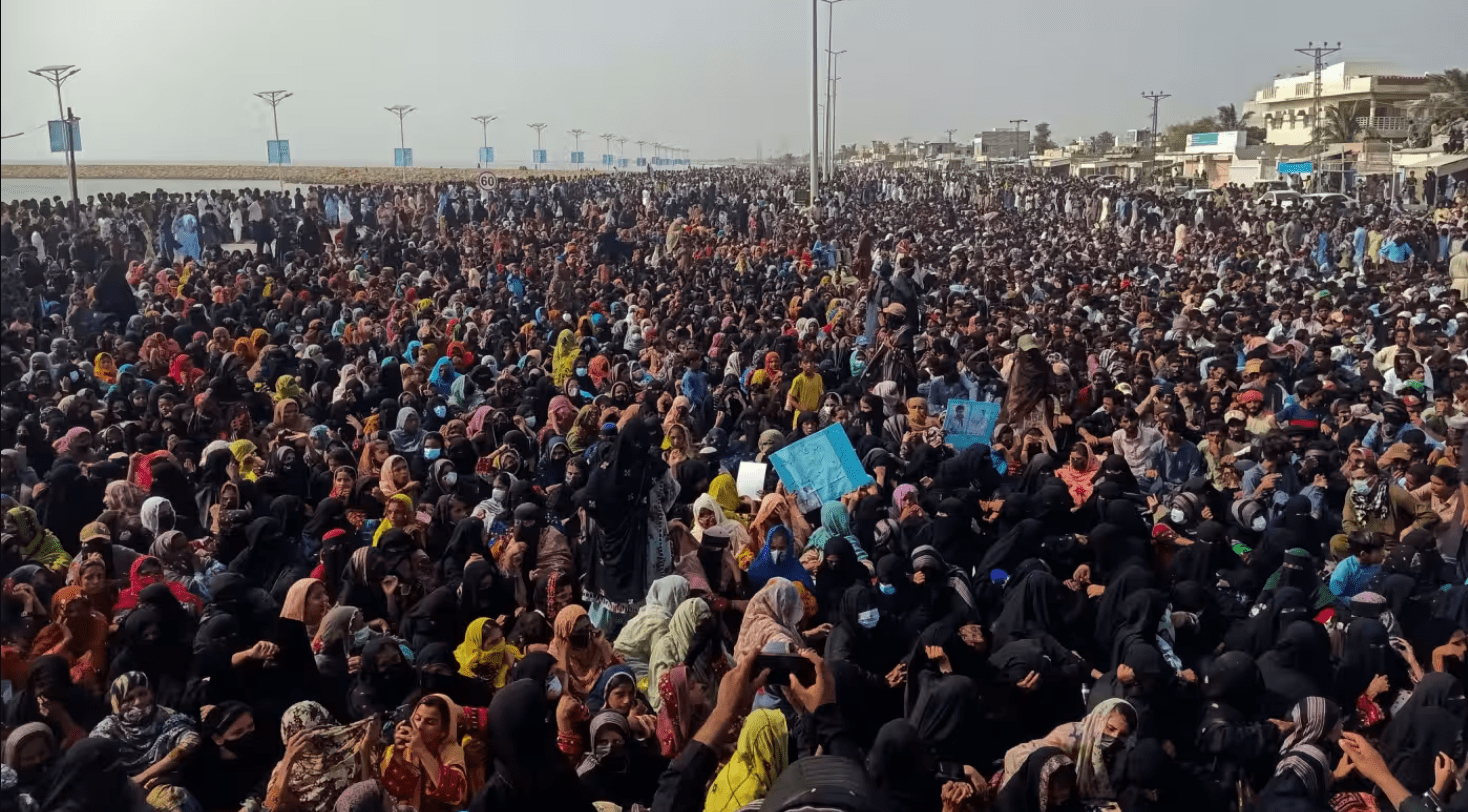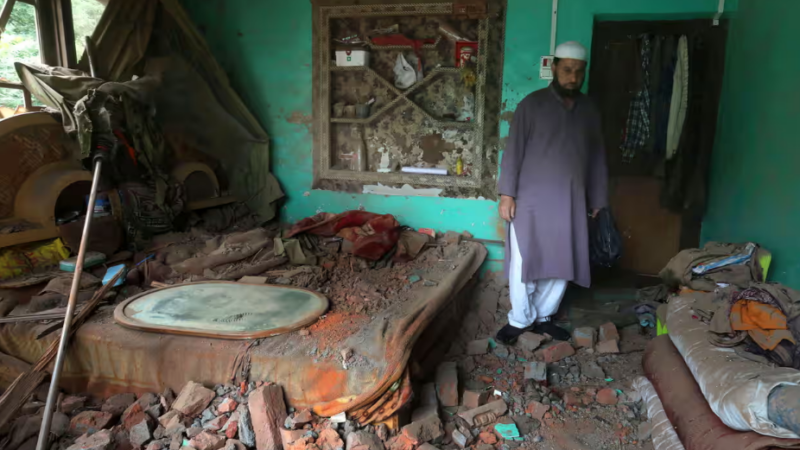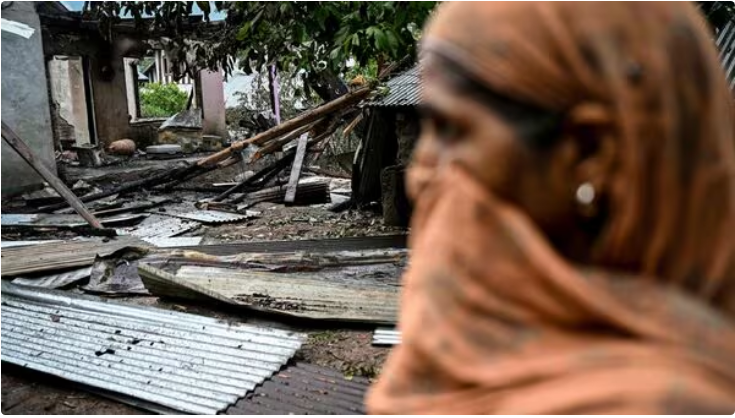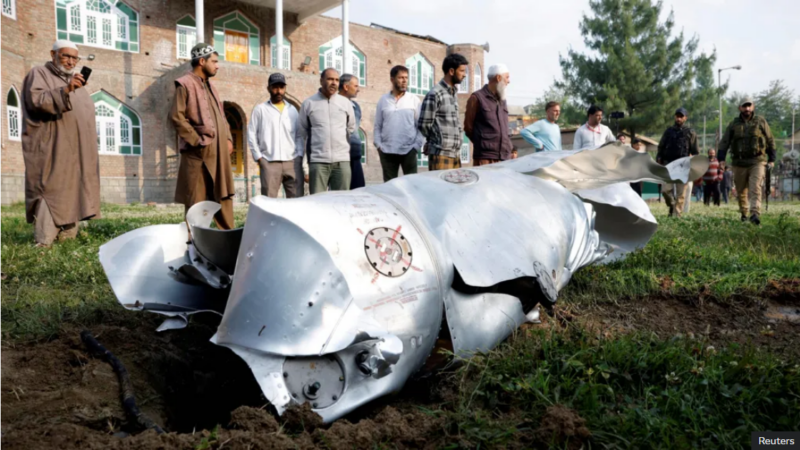Pakistan’s Gwadar, home of Chinese-controlled port, witnesses siege-like situation over Baloch protests

Life in Pakistan’s Gwadar, home of a Chinese-controlled port, has been disrupted since last week as massive protests have erupted in the southwestern Pakistani port city, raising significant worries for China.
The protests are being organized by the Baloch Yakjehti Committee (Baloch Unity Committee, or, BYC), a human rights advocacy group focused on civil, political and economic rights in Pakistan’s Balochistan province, reports said.
According to reports, thousands of Baloch people have gathered in Gwadar to protest against the Pakistani government.
The protesters want an end to enforced disappearances and extrajudicial killings of people in Balochistan — the largest and poorest province of Pakistan — and their fair share of the Balochistan’s mineral wealth as the province is rich in natural resources, including oil, coal, gold, copper, and gas reserves, which generate substantial revenue for the country’s federal government.
While demonstrators said Gwadar was chosen as the site for the protest because the port there was built by China under its Belt and Road Initiative (BRI), local media reported that the Pakistani government is resorting to violence to try and crush the Baloch protests.
Gwadar is the only deep-sea port in Pakistan on the Arabian Sea, and it is a key route of the $60 billion China-Pakistan Economic Corridor (CPEC).
According to a statement by the BYC posted on X (formerly Twitter) last week, one of the arrested leaders Sabiha Baloch was released after increasing dissent from the protestors, while the whereabouts of two other Baloch activists Sammi Deen Baloch and Sabgath Ullah Baloch remain unknown.
“More than 200 participants have been arrested from the Gwadar sit-in, and we have no information about them either,” the BYC stated in the X post.
The human rights advocacy group, in another statement, had urged all state institutions to unconditionally release the peaceful protesters that had been arrested during the Baloch National Gathering (Baloch Raaji Muchi).
“Finally, we make it clear to the state and all its institutions to immediately release all the arrested colleagues including our leadership without any ifs and buts, restore the internet and mobile network throughout Makran including Gwadar and in all areas of Balochistan. Completely remove obstacles in front of all our convoys stopped at gunpoint by force,” the BYC statement read.
The statement released by the BYC further mentioned that “If the state and its institutions still do not change their terrorist and oppressive behaviour, then we will shut down the entire Balochistan including capital Quetta for an indefinite period and if any untoward incident occurs during this period, then all the responsibility will be on the state and it will be imposed on its institutions.”
“Through this press conference, we inform BYC workers and Baloch people across Balochistan that peaceful and orderly dharna, protest rallies and wheel jam and shutterdown strikes should be held across Balochistan,” the statement read.
Responding to the same situation in Balochistan, prominent Pakistani journalist Hamid Mir had previously raised his concerns, while warning that arrests of Baloch leaders and protestors will not yield any positive results.
In a post on X, Hamid Mir said, “Sammi and Sabiha have always raised their voice against enforced disappearances. Now they are missing. Police are saying they are with FC [Frontier Corps] and FC is not admitting their arrest.”
“Disappearance of their fathers never produced any positive result and disappearance of these women will further harm the state,” the journalist added in the post.
Earlier, the BYC urged the United Nations (UN) and international human rights organisations to take note of the peaceful protesters’ arrests by Pakistani forces.
According to Al Jazeera, the protesters from Balochistan — the home to approximately 15 million of Pakistan’s estimated 240 million people, according to the 2023 census — allege that the Pakistani government has neglected their community and exploited the province’s mineral resources.
The anger fuelled separatist sentiments, with Balochistan witnessing at least five rebellion movements since the formation of Pakistan in 1947, as per reports.
The latest wave of rebellion began in the early 2000s to demand a larger share of the province’s resources and even calls for complete independence, reports Al Jazeera, adding that the Pakistani security forces have since launched a severe crackdown on the rebellion, killing thousands of people in the last two decades.
The port city of Gwadar, due to its economic prominence, has been a hotbed of violence by armed and separatist groups, the latest being in March 2024, when eight men tried to enter the Gwadar Port Authority (GPA) complex before they were shot dead by security officials.
Meanwhile, slamming the protests, Balochistan’s Chief Minister Sarfraz Bugti last week said, “We were offering them space to hold a rally elsewhere, but they refused and remained adamant to hold it in Gwadar.”
“The purpose behind this chaos is to sabotage all the development and progress that the province has seen,” Bugti said from inside the state assembly.
The Balochistan CM said that while the citizens have a right to assemble, they should not have the “intentions to disrupt peace and order”.
However, international human rights group Amnesty International last week accused the Pakistani authorities of trying to “vilify and criminalise peaceful protesters”.
“Every time Baloch protests take place, their demands are met with violence by security forces and mass arrests. We saw it in December last year at the Baloch Long March. We see it now again with the Baloch Raji Machi protests in what is clearly a punitive attempt by the Pakistani authorities to deter, vilify and criminalize peaceful protesters,” Amnesty International said in a statement.
“Amnesty International calls for an end to the brutal crackdown on the Baloch protests and the immediate and unconditional release of all those arrested for exercising their right of peaceful assembly,” the London-headquartered human rights organization said.
The Human Rights Commission of Pakistan (HRCP), an independent, democratic, nonpartisan organization committed to supporting human rights in the country, also criticised the “unnecessary” use of force against Baloch protesters and the suspension of internet and mobile services.
“They should constitute a high-level parliamentary delegation to meet with Baloch representatives and listen carefully to their demands,” the HRCP said in a statement.






